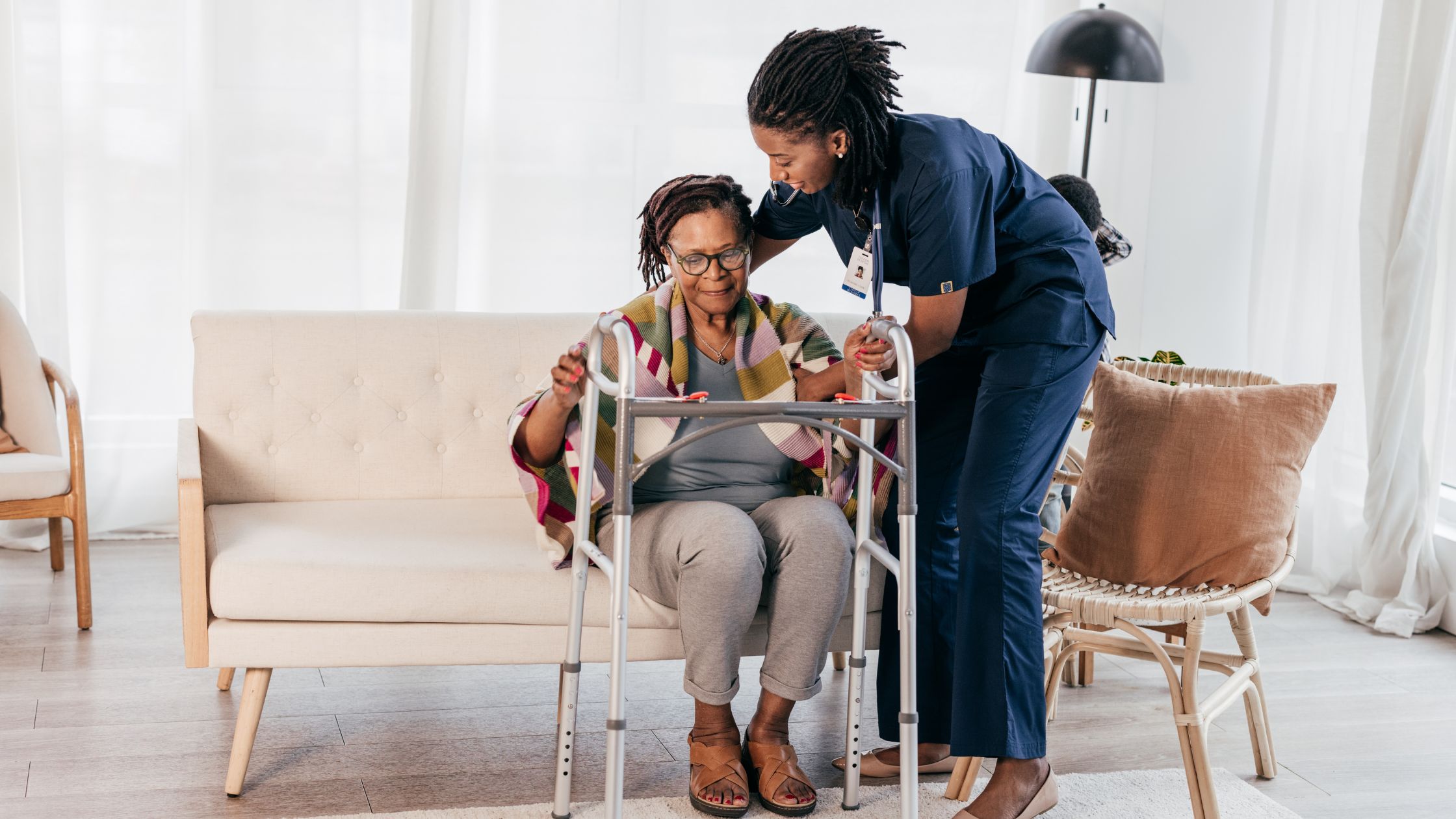
Regarding home care, medication management is one of the most critical aspects of ensuring that individuals, especially older adults, maintain their health and well-being. Taking the right medicines at the correct times and dosages may seem straightforward, but without a well-structured plan, mistakes can happen, leading to potentially serious health issues. For carers and family members, understanding the importance of medication management and the steps involved can significantly enhance the quality of care and prevent complications. This guide will explore why effective medication management is essential in-home care and provide practical tips for making it part of everyday life.
Why Medication Management Matters in Home Care
Preventing Serious Health Risks
Medication errors are more common than we think, especially when managing multiple prescriptions. Ensuring that medications are taken correctly is vital to avoid adverse reactions, overdoses, or missed doses.
Avoiding Drug Interactions: Many people, particularly older adults, take multiple medications daily. Some drugs can interact negatively with others, causing harmful effects. A well-organised medication plan helps prevent these interactions by ensuring the carer or individual is aware of potential medication conflicts.
Managing Chronic Conditions: For individuals with chronic conditions like heart disease, diabetes, or arthritis, sticking to a prescribed medication routine is essential for controlling symptoms and preventing flare-ups or complications.
Promoting Consistency: Consistency in medication use helps maintain the correct therapeutic levels in the body, allowing medications to work effectively. This can mean fewer trips to the hospital and an overall improvement in quality of life.
Setting Up a Safe and Effective Medication Routine
Keeping Everything Organised and On Time
A straightforward medication routine ensures that medicines are taken as prescribed. A good routine provides structure and makes it easier for carers and individuals to follow the plan accurately.
Using Pill Organisers: Pill organisers can be a lifesaver, especially for individuals managing several medications. Weekly or daily pillboxes allow carers or patients to prepare doses in advance, reducing confusion about whether a dose has been taken.
Creating a Medication Schedule: A detailed schedule outlining what medication should be taken and when is crucial. This schedule should include the name of the medicine, the dosage, and any specific instructions such as ‘take with food’ or ‘avoid after meals’. Keeping this schedule visible, perhaps on the fridge or a bulletin board, can be a helpful reminder.
Setting Reminders: Alarms or phone reminders can be extremely useful for those who might forget to take their medications. These reminders can be set up on smartphones, or carers can use dedicated medication reminder apps to keep everything on track.
The Role of Carers in Medication Management
Supporting Independence with Gentle Guidance
Carers are vital in helping individuals manage their medications without taking away their sense of independence. Striking the right balance between support and autonomy ensures that the person receiving care remains in control of their health while receiving the help they need.
Providing Gentle Reminders: Sometimes, all that’s needed is a simple reminder to take medications. Carers can help individuals stay on top of their routine without being overly involved, which can help maintain their independence.
Checking for Side Effects: Carers should also look for any side effects from medications. This could include anything from dizziness and nausea to more severe reactions. Carers should communicate with healthcare professionals to adjust the medication plan if any new symptoms appear.
Communicating with Healthcare Providers: Carers are essential to the patient and their healthcare team. Regular communication ensures that everyone is updated on the medication regimen and that prescription changes are correctly implemented.
Handling Changes in Medication
Adapting Quickly to New Prescriptions or Dosage Adjustments
Medications are not always set in stone; they often change based on the individual’s health needs. Handling these changes efficiently is essential for avoiding mistakes and ensuring the individual’s health remains stable.
Updating Medication Lists: Every time there is a change in medication, it’s essential to update all lists and schedules. This prevents confusion about which medications are still in use and ensures that discontinued medications aren’t taken by mistake.
Safely Disposing of Old Medications: When medications are no longer needed, they should be disposed of properly. Many pharmacies offer disposal services to ensure that medicines are not left lying around, where they could be accidentally taken or misused.
Managing Prescription Refills: Keeping track of when medications need to be refilled helps prevent gaps in treatment. Carers can help by ensuring prescriptions are refilled on time and delivered by collecting them from the pharmacy or setting up delivery services.|
Ensuring Safety with Medication Storage
Keeping Medications Out of Harm’s Way
Storing medications correctly is essential for safety and effectiveness. Improper storage can cause medications to degrade or become unsafe to use, and leaving them in accessible places could pose a risk to children or pets.
Proper Storage Conditions: Medications should be stored in a cool, dry place unless otherwise instructed by a healthcare provider. Humid environments like bathrooms are usually unsuitable for storing medicines, as moisture can reduce their effectiveness.
Childproof Containers: If children are around, ensure medications are stored in containers with childproof caps and kept out of reach. This is especially important for painkillers, blood pressure medicines, and other common drugs that could be harmful in the wrong hands.
Keeping an Eye on Expiry Dates: Expired medications should never be taken, as they may no longer be effective or harmful. Carers should regularly check the expiry dates and replace any out-of-date medicines.
Working with the Patient’s Preferences
Involving the Individual in Their Care
Medication management doesn’t have to be rigid. Involving the individual in decisions about their medication routine can make them feel more in control of their care and more likely to stick to the plan.
Allowing for Preferences: Some people prefer taking their medications with meals, while others might prefer different times of the day. Wherever possible, accommodate these preferences to make the routine more comfortable and manageable.
Educating About Medications: Ensure that the person understands what each medication is for and why it’s essential to take it. Knowledge can empower them to take their medication more seriously, reducing the chances of missed doses.
The Importance of Regular Medication Reviews
Keeping Everything Up-to-Date and Effective
Regular medication reviews are essential, especially for those on long-term prescriptions. These reviews ensure that the treatment plan is still working effectively and that no unnecessary medications are being taken.
Scheduling Reviews with Healthcare Providers: Set up regular medication reviews with the individual’s GP or pharmacist to ensure the current medication plan is still appropriate. Over time, the need for certain medications may decrease, or new treatments may become available.
Reevaluating the Treatment Plan: During reviews, discuss how the person feels and whether the medicines manage their symptoms effectively. This is also an opportunity to check for any side effects that may have developed over time.
Keeping Medication Management Stress-Free
Medication management doesn’t need to be complicated or overwhelming. Home care can be safe and effective with suitable systems in place—whether it’s using pill organisers, setting reminders, or keeping up with regular medication reviews. For carers, patients, and families alike, managing medications properly ensures peace of mind, reduces the risk of health issues, and supports a higher quality of life.
FAQs
What’s the best way to organise multiple medications?
Using a pill organiser and keeping a detailed schedule with times, dosages, and instructions can help simplify managing multiple medications.
How often should medication reviews be conducted?
It’s a good idea to have a medication review at least once a year or more frequently if the individual’s health condition changes or they are taking multiple prescriptions.
What should I do if I miss a dose of medication?
Always consult a healthcare provider on what to do if a dose is missed, as the steps may vary depending on the medication. Never double up doses without professional advice.

 Log in with Facebook
Log in with Facebook 








